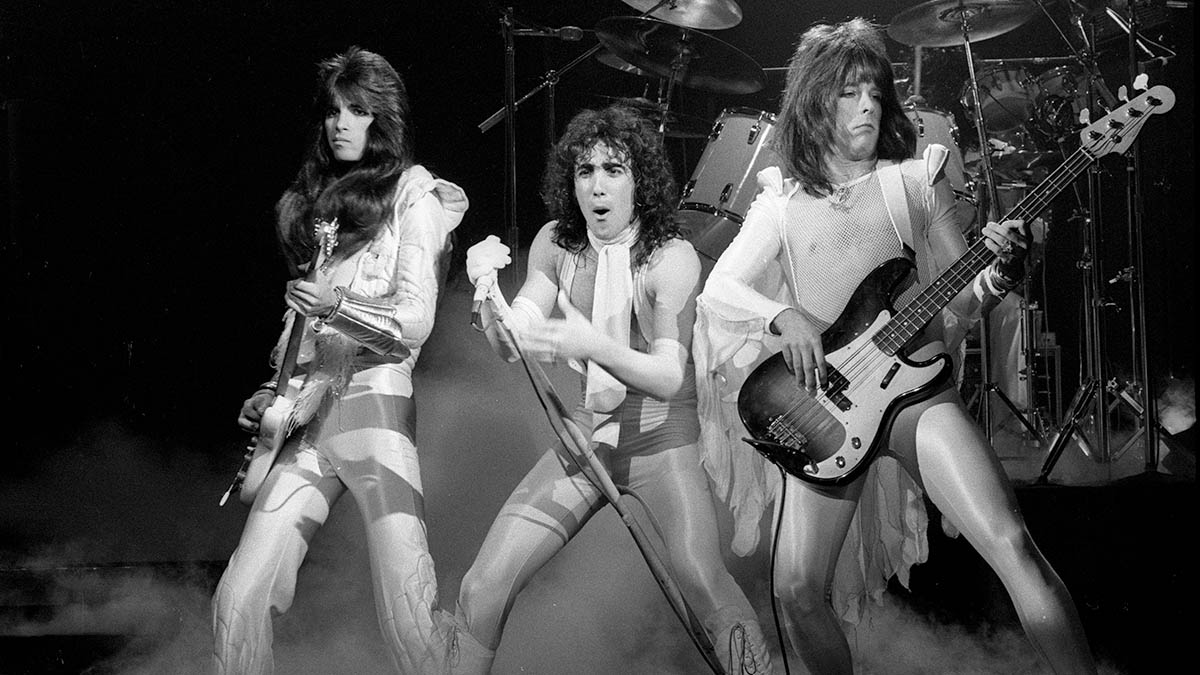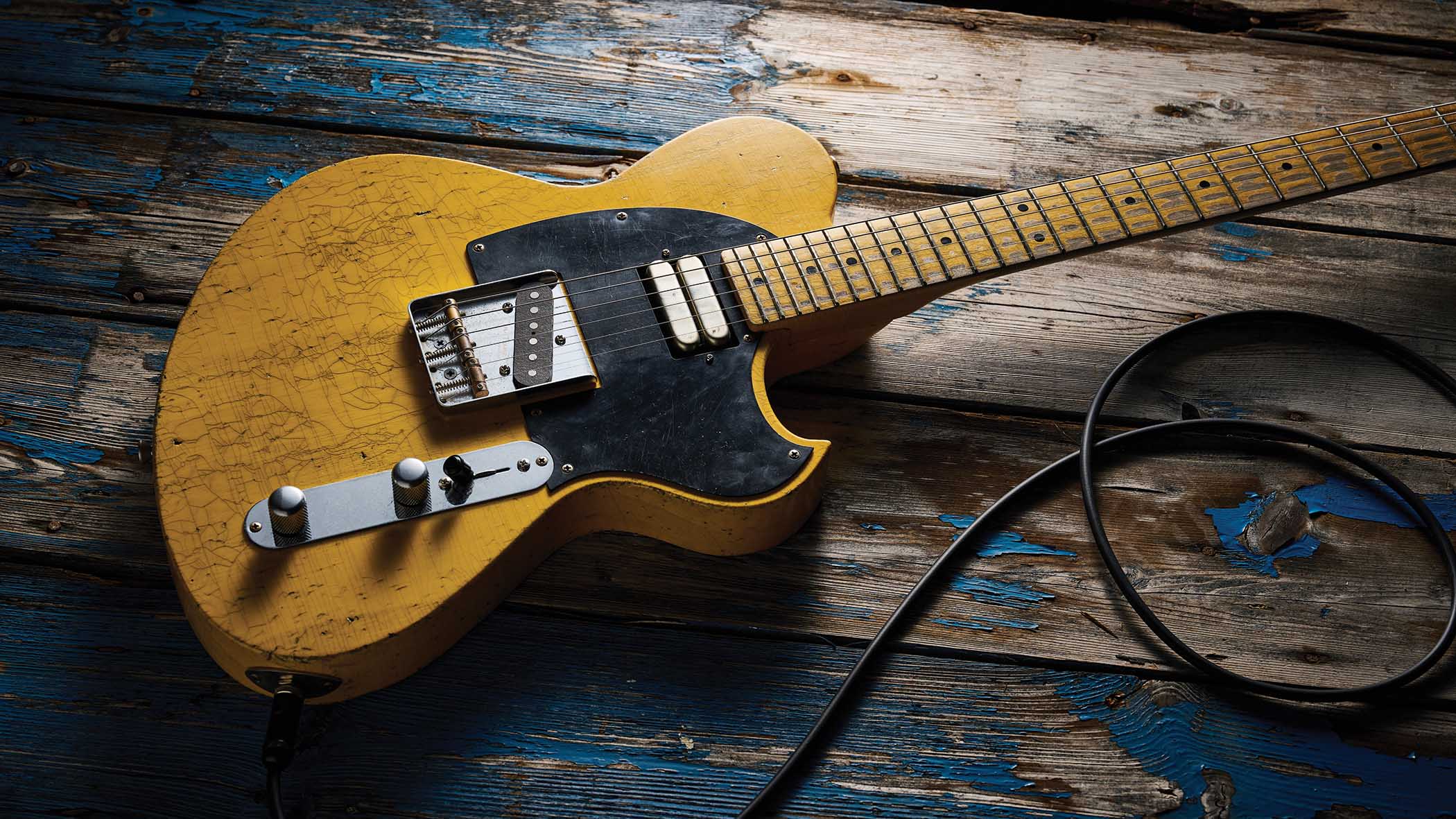“Guys like Andy Timmons told me my playing is a part of his musical DNA. Marty Friedman and Paul Gilbert told me the same thing”: Angel's Punky Meadows on the return of a cult guitar hero
With the classic rock institution's second act revival shows no sign of slowing, guitarist Punky Meadows checks in to talk soloing, the blues, and the physical need to play the guitar

All the latest guitar news, interviews, lessons, reviews, deals and more, direct to your inbox!
You are now subscribed
Your newsletter sign-up was successful
With the world devolving into a sweltering casserole of low attention spans and ever-fickle attitudes for what some call “legacy acts,” it’s becoming harder and harder to create, let alone support, new music. But that’s no matter to ’70s glam titans Angel.
Since their triumphant return to the studio, 2019’s I, the group has done its part to carry the torch and keep it burning bright. And so, when the news came that Angel were at work again, their fanbase was excited. If the early returns are any indication, Angel’s latest offering, Once Upon a Time, is yet another glimmering affair, laced with slick solos, soaring vocals and cohesive instrumentation.
I’m a blues player; that’s where I cut my teeth. I think I’ve added some of that into the sauce here
Still, the pitfalls of the modern era remain. When asked if those issues weigh on him, guitarist Punky Meadows says, “Angel fans are fierce. They’re so loyal. Everybody knows records are hard to sell nowadays. But look, I’m a guitar player; I’ve never worried about what’s popular. But our record company was worried about having so many songs.
“They said, ‘Punky, why don’t you lose some of these songs?’ I said, ‘I can’t do that. I might be dead next year. It’s all got to come out now.’ We decided to keep all the songs and make it an experience. We can’t worry about selling CDs. All we can do is make a good record and hope the fans are into it as much as we are.”
As he prepares to hit the road, Punky Meadows had a chat with Guitar World to recount the origins of Once Upon a Time, dig into his gear and offer his musings on Angel’s second act.
What can you tell me about Angel’s new record, Once Upon a Time?
“We were promoting the last record, Risen, and then Covid hit, so I told Danny [Farrow] and Frank [DiMino], ‘Hey, maybe we should write another album.’ I figured we might as well make the most of the time while sitting there and doing nothing. So we talked to Cleopatra, our label, and they were happy to give us another deal.
All the latest guitar news, interviews, lessons, reviews, deals and more, direct to your inbox!
“From there, Danny and I started writing right away, and I’m pretty prolific; I’m always writing. I sit on my couch playing my guitar and watch TV every night, but nobody can watch TV with me because I play the whole time. [Laughs]”
What sets this record apart from past albums?
“What I love about Angel is the diversity. I never want to repeatedly give the fans the same record like many bands do. I like diversification. I came up playing in bar bands, and I had to play Motown, dance music, British Invasion and blues. I love playing all of it; I love to play with octaves and stuff.
“I’m a blues player; that’s where I cut my teeth. I think I’ve added some of that into the sauce here. Angel was never a one-trick pony; we covered glam, prog, power pop and rock. I love melody, so if it’s got that, I’m happy.”
Do you have a favorite track on Once Upon a Time?
“This album has all the things Angel fans expect, but it’s also got some deep lyrical songs. If I had to key in on one, I’d go with Once Upon a Time an Angel and a Devil Fell in Love (and It Did Not End Well). It’s an age-old story about not dancing with the Devil… And I was wondering if people will be offended by that, or if they’ll love it and get it.
Tone is big for me, and as far as that goes, I believe that comes from your fingers
“You’ve got a song about an angel coming down who’s looking for love, and she meets the Devil, and they get together. She helps heal him, but in the end, he kills her by stabbing her in the back, and before she dies, she says, ‘Why did you kill me?’
“And he says, ‘What did you expect? You knew I was the Devil all along.’ I’m proud of that song because it’s a cautionary tale. We said a lot in a five-minute piece, and it’s very memorable.”
What’s your approach to soloing?
“I pretty much just wing it. [Laughs] I’ll play a couple of passes, and I’ll run with it if there’s something there. If not, I’ll keep working on it. Sometimes you get it on the first pass; other times, it’s more of a struggle.
“I’ll hit one note and hang on it for a while and stay away from distortion. I try to pick clean and fast, maybe adding some hybrid picking here and there. Tone is big for me, and as far as that goes, I believe that comes from your fingers. People tell me they can pick my tone out in a second, which is gratifying.”
What gear are you using?
“I’ve been playing my Strat forever. Well, it’s not a true Fender Strat; I built it. The body is Fender and the rest is Carvin. It’s got a Carvin neck, Carvin guts and a Sophia tremolo, which I believe is the best tremolo on the market.
“If you do double-stop bends, your strings will usually go flat, but the Sophia keeps things from going flat when you hit the whammy bar.
“Other than that, I’m a purist. I don’t have that many pedals besides my old [Ibanez] Tube Screamer and a [J.Rockett Audio] Rockaway [Archer overdrive/EQ] with a nice six-band EQ. Beyond those, I use a chorus, a little echo and maybe a bit of reverb here and there. But I mostly keep it simple and rely on my guitar and a good amp.”
Given its historical status as a hard-luck band, describe the meaning of Angel’s second act.
“It means all the world to me. I walked away from music in 1988, went into business for myself, entered the stock market and did well. But I never stopped playing guitar and writing songs; I always wanted to play.
For me, playing guitar is not something I want to do; it’s something I need to do
“But the music business left me with such a bad taste in my mouth, so when I quit, I was so relieved that I didn’t think I’d ever go back. I was doing my own thing, and honestly, if I hadn’t met Danny and then hooked up with Frank again, I don’t think I would’ve returned. But now, it’s exciting to be back because I love playing guitar in a live setting.
“For me, playing guitar is not something I want to do; it’s something I need to do. I look forward to it; it’s like sitting down with an old friend. We talk together about shit, and it makes me feel good. And even when I’m not playing anything, I’m always noodling. I still love it. It never left me. Music and the guitar are a part of who I am.”
Given your distrust for the industry, to what does Angel owe their longevity?
“I think it’s because we love what we’re doing. A lot of times, you see bands come back, and they’re shadows of themselves. Many older bands go through the motions, but that’s not the case with Angel.
“When we hit the stage, we mean it. We don’t rely on what we’ve done; we focus on improving. It’s not always easy; being on the road is hard; eating and sleeping aren’t always good. But once you hit the stage and the fans are there, you give it your all.
“I was shocked when I first came on Facebook years back because I learned I had influenced many big guitar players. Guys like Andy Timmons told me my playing is a part of his musical DNA. Marty Friedman and Paul Gilbert told me the same thing. These are such monster players, and all I can say is that I’m honored. I am honored to continue doing this for myself and the fans.”
- Once Upon a Time is out now via Cleopatra.
Andrew Daly is an iced-coffee-addicted, oddball Telecaster-playing, alfredo pasta-loving journalist from Long Island, NY, who, in addition to being a contributing writer for Guitar World, scribes for Bass Player, Guitar Player, Guitarist, and MusicRadar. Andrew has interviewed favorites like Ace Frehley, Johnny Marr, Vito Bratta, Bruce Kulick, Joe Perry, Brad Whitford, Tom Morello, Rich Robinson, and Paul Stanley, while his all-time favorite (rhythm player), Keith Richards, continues to elude him.

